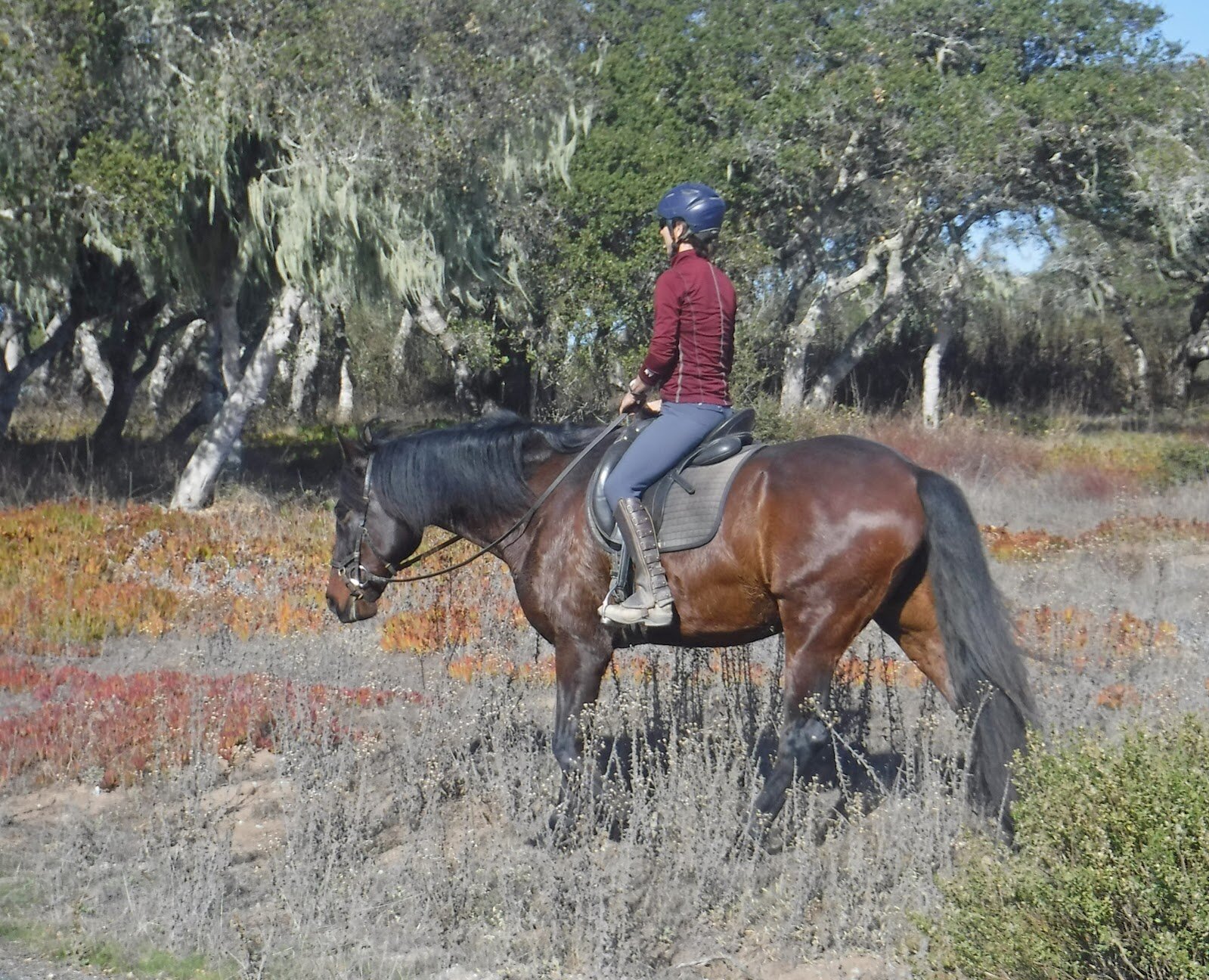What’s Wrong with Weekend Warriors?
Most horses’ good natures override their physical needs, allowing us to believe they do just fine with once or twice weekly rides and nothing in between. In fact, since their complaints are often so subtle, we might think they are suited to be weekend warriors. The reality is that a horse’s body is designed even more poorly than ours to stand around all week and then go for a 6-mile jaunt or perform arena figures on the weekend.
While many horse will tolerate the weekend warrior exercise schedule, none of them benefits from it. Multiple physiology studies have shown that when horses exercise (“exercise” is defined here as continuous 30+ minutes of moderate cardiovascular activity) fewer than 3 days per week, their bodies are not adapted to fitness demands. Riding or training two or fewer days per week results in the following: poorly coordinated muscle fiber recruitment that creates inconsistent movement patterns and therefore tension , an accumulation of metabolic waste in muscle tissue that becomes inflammation, matted fascia, de-activated core muscles.
The following is a list of adaptations made by horses in consistent exercise that allows them to perform with greater comfort, efficiency, and a no-soreness recovery:
muscle enzymes— help muscles function and prevent cramping
plasma volume— improves distribution of blood and proteins to cells
mitochondrial density—delivers fuel to working muscles
capillary density— improves circulation, deliver blood and oxygen to muscle cells
muscle fiber enlargement— more powerful muscle contractions
bone density— resilience to exercise, less concussion for cartilage
improved thermoregulation— lower respiratory rates and efficient cooldown post-workout
habituated patterns of movement originating from the central nervous system
Horses that spend several hours per day in a pasture do not necessarily make these same adaptations, so be sure to factor this when assessing your own schedule. These changes do not happen on their own, and without them bouts of sustained exercise— a trail ride with your pals on Saturday or a weekly schooling session— has deleterious effects. I am reminded of a phrase used by one of my former instructors. When told that a horse was routinely ridden twice per week, he would reply: “Oh, so just enough to make him sore?” His point was that the horse never received enough exercise to no longer be sore from his rides.
By no means do I wish to denigrate riders who only have time to spend with their horses on weekends. Time is undoubtedly a challenging commodity when it comes to owning horses. What matters is that we do not treat our horses with different expectations than ourselves, because they are no more calibrated for sustained cardiovascular exercise under a load on their backs than we are. They lack the ability to verbalize how achey and ill-effected they might be, but this does not downgrade our responsibility to do right by them. You do not need to invest heaps of time training during the week to enjoy your weekend rides.
I believe many riders become weekend warriors become they erroneously believe that if they don’t have time to ride for 45 minutes on a weekday, they are better off skipping it altogether. Instead, they show up at the barn, feed him a carrot, brush out his tail, and wait until the weekend when they have more time to ride. Even just several minutes of focused movement can benefit the horse.
Studies show that 25 minutes of light exercise three times per week can help the horse make the adaptations listed above. In inclement weather this might include: hand-walking or stepping over poles on a longe line, two- to three-minute intervals of jogging interspersed with calisthenics like butt tucks and carrot stretches, a focused walk workout under saddle for 25 minutes. I have seen many students get creative to find their horse more movement. During limited daylight hours, a few of them have combined their own fitness needs with their horses, taking the horse with them on a brisk power walk in the hills before or after work. Why not go hiking with your horse? Others splurge during the winter and hire a trainer or friend to exercise their horse once or twice mid-week.
If none of these is a possibility for you, the next best option is to acknowledge that a horse’s musculo-skeletal system is even more poorly designed to be a weekend warrior than ours. Operate with this awareness when you show up at the barn. Perhaps instead of the 2-hour trail ride with friends you might consider a 30 minute hack or calisthenics for your furry friend.




